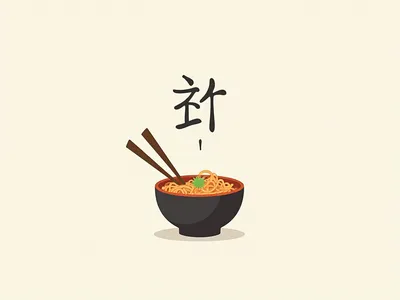
Learn Essential Japanese Vocabulary for Beginners – A1 Level
When learning Japanese at the A1 level (beginner), focusing on essential vocabulary is crucial for building foundational language skills. The Common European Framework of Reference for Languages (CEFR) defines A1 as the ability to understand and use familiar everyday expressions and very basic phrases aimed at satisfying concrete needs. Below are the most important types of words to learn at this level:
Key Vocabulary Categories for Japanese A1
1. Basic Greetings and Expressions
- こんにちは (Konnichiwa) - Hello
- さようなら (Sayounara) - Goodbye
- ありがとう (Arigatou) - Thank you
- すみません (Sumimasen) - Excuse me / Sorry
- おはようございます (Ohayou gozaimasu) - Good morning
- こんばんは (Konbanwa) - Good evening
2. Numbers and Counting
- 1 to 10: いち, に, さん, し/よん, ご, ろく, なな/しち, はち, きゅう, じゅう (ichi, ni, san, shi/yon, go, roku, nana/shichi, hachi, kyuu, juu)
- Days of the week: 月曜日 (Getsuyoubi - Monday), 火曜日 (Kayoubi - Tuesday), etc.
- Basic counters: ひとつ (hitotsu - one thing), ふたり (futari - two people)
3. Pronouns
- わたし (Watashi) - I/me
- あなた (Anata) - You
- かれ (Kare) - He/him
- かのじょ (Kanojo) - She/her
4. Common Verbs
- たべる (Taberu) - To eat
- のむ (Nomu) - To drink
- いく (Iku) - To go
- くる (Kuru) - To come
- する (Suru) - To do
- ある/いる (Aru/Iru) - To exist (for objects/people)
5. Adjectives
- おおきい (Ookii) - Big
- ちいさい (Chiisai) - Small
- あたらしい (Atarashii) - New
- ふるい (Furui) - Old
6. Everyday Nouns
- Objects: ほん (Hon - Book), てがみ (Tegami - Letter), かぎ (Kagi - Key)
- Places: がっこう (Gakkou - School), えき (Eki - Station), いえ/うち (Ie/Uchi - House)
- Food and drinks: ごはん (Gohan - Rice/meal), みず (Mizu - Water), おちゃ (Ocha - Tea)
7. Question Words
- なに/なん (Nani/Nan) - What
- どこ (Doko) - Where
- いつ (Itsu) - When
- だれ (Dare) - Who
8. Particles
Particles are essential in Japanese grammar:
- は/が (wa/ga) – Topic/subject markers
- を (wo) – Object marker
- に/へ (ni/e) – Direction markers
9. Onomatopoeia
Japanese uses many onomatopoeic words that are common even for beginners:
- Example: ぺこぺこ (Peko-peko) – Hungry
10. Cultural Words
Understanding culturally significant words can help with basic interaction:
- Honorifics: Adding -さん, -くん, or -ちゃん
By focusing on these core categories of vocabulary and practicing them in context through greetings, simple sentences, and daily interactions, learners can build a strong foundation in Japanese at the A1 level.
References
-
Selection of High School Japanese Vocabulary List and Its Application
-
C-J Translation Strategies of Network New Words Under the Communicative Translation
-
The Example of Teaching False Equivalent Words in Teaching Turkish to Kyrgyz
-
Vocabulary frequency and dispersion in Japanese junior high school EFL textbooks
-
Research on Japanese Vocabulary Learning Recommendation Methods Based on Data Intelligence Analysis
-
Lexical Analysis of Japanese Children’s Songs from the Perspective of Japanese Language Education
-
A Japanese learning support system based on 5W1H and ontology technique
-
Pembentukan Kata dalam Komik Hanazakari No Kimitachi He Ikemen Paradise Volume 1
-
Analysis and prediction of vowel devocalization in isolated Japanese words
-
Vocabulary in Japanese EFL Textbooks: A Bidirectional Coverage Analysis
-
Kodansha’s Hiragana Workbook: A Step-by-Step Approach to Basic Japanese Writing
-
The Construction of a Database to Support the Compilation of Japanese Learners’ Dictionaries